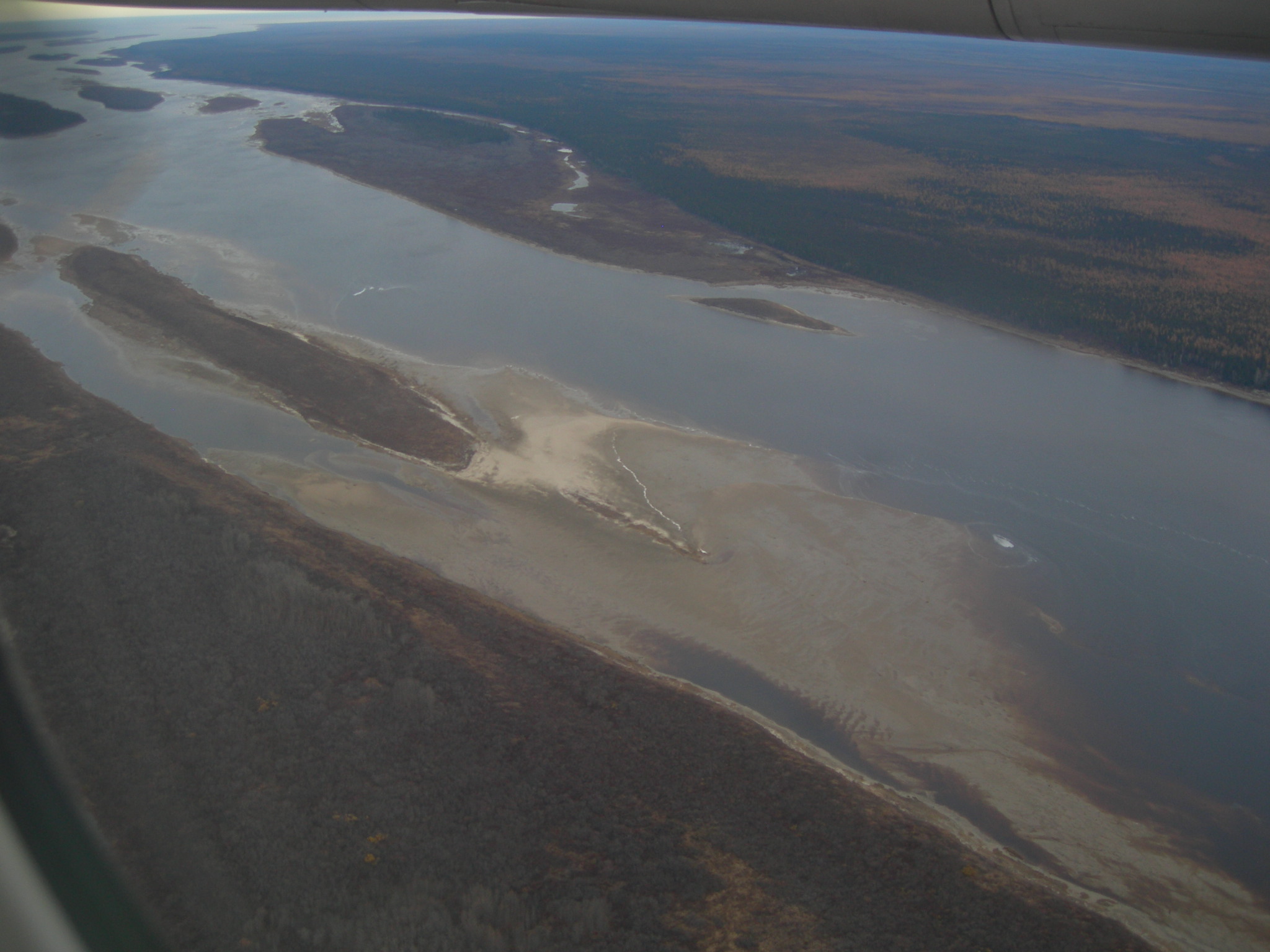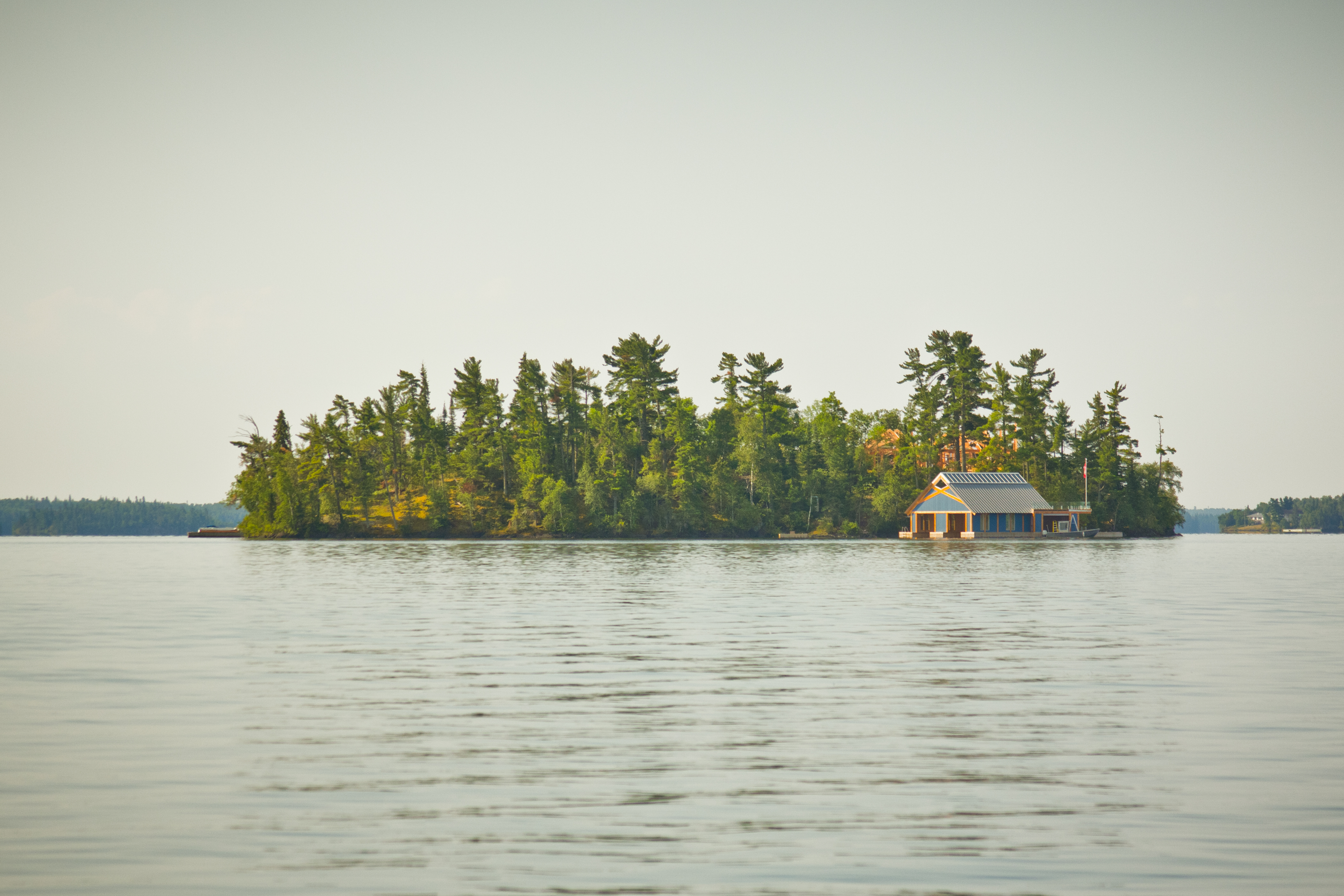Session 1: Life in Northern Rural and Remote Communities
Introduction
 Photo credit: eva b (CC BY-NC 2.0)
Photo credit: eva b (CC BY-NC 2.0)
“Rural means there’s a Tim Horton’s. Remote means there’s none.”
(Adapted from Pitblado, 2002)
What do the terms 'rural' and 'remote' actually mean? In this introductory session, you will explore the concepts of rural, remote, and northern communities in Canada. You will have the opportunity to become more familiar with what it means to live in rural and remote communities and how this can impact health and wellness. You will also begin to examine your own perceptions around life and practice in rural and remote northern communities.
Main Topics
- Terminology in reference to communities: concepts of rural, remote, urban, northern
- Health status of people living in rural and remote northern communities related to social determinants of health and inequity
- Overview of Northern Ontario: geographical diversity, cultural diversity, and implications for healthcare
Intended Learning Outcomes
- Explain the following concepts in reference to Northern Ontario communities:rural, remote, urban, northern, Aboriginal, Francophone;
Identify and explore communities from each of these categories in Northern Ontario. - Describe the geographical and cultural diversity of Northern Ontario and consider the implications for lifestyle and health care.
- Explain the role and impact of the social determinants of health in rural, remote, northern, and Aboriginal communities.
Readings and Resources

Photo credit: What a Ride (CC BY-NC-ND 2.0)
1. Northern Ontario School of Medicine. Interprofessional learning guide1
- Northern Placement Considerations pages 1-8 (The rest of this document will be reviewed in Session 3.) This document provides an overview of considerations for northern, rural, and remote placements.
2. Pitblado, J. So, what do we mean by “rural,” “remote,” and “northern”?2
3. Ministerial Advisory Council on Rural Health. Rural health in rural hands. Strategic directions for rural, remote, northern and aboriginal communities3
- Pages 1-16 (Executive Summary, Section 1: Introduction, Section 2: Challenges in Rural, Remote, Northern, and Aboriginal Communities). Canadian resource
4. Rural and Northern Health Care Panel. Rural and northern health care report4
- Ontario resource
5. Goar, C. Northern Ontario has beautiful landscape but crushing poverty5
Want to explore further? Here are some optional resources.
- Northern Ontario School of Medicine. (2014). Working with aboriginal peoples: NOSM health sciences competency checklist. Retrieved June 10, 2015 from: http://www.nosm.ca/uploadedFiles/Education/NODI/Aboriginal%20CC%20Implementation%20Toolkit_Appendix%20C_Competency%20Checklist_Feb2014.pdf.
- This checklist was developed by the Northern Ontario School of Medicine and is a helpful resource in identifying your own learning needs around working with Aboriginal people. This topic is covered in detail in the Aboriginal Health Module.
- C’est la vie, CBC. (2014, Oct 26). Bridging the two solitudes in medical care. Retrieved June 10, 2015 from: http://www.cbc.ca/player/Radio/C'est+la+vie/ID/2568534332/
- This resource explores improving communication between English speaking doctors and French speaking patients. Segment ends at 19:30 minutes.
- Superior Outdoors Inc. (2014) Outdoor adventures in northern Ontario. Retrieved June 10, 2015 from http://www.explorenorthernontario.com/online-map.html. What sorts of outdoor adventures do different communities offer?
Learning Activities
Activity 1:
In this activity, there are no right or wrong answers. We would like you to explore your own ideas and questions around rural, remote, and northern communities to get you thinking about these concepts before engaging with the resources provided.
- Briefly describe (3-5 sentences) any personal experience, knowledge, or exposure you may have had regarding rural/remote/northern communities. If you have no direct experience, what has influenced your perceptions of these types of communities?
- Explain why you are interested in spending time learning/living/practicing in a northern rural or remote community (maximum 5 sentences).
- Identify and list questions or concerns you might have personally about living, learning, or practicing in a northern rural or remote community. Post your responses to the “Session 1 – Learning Activity 1” discussion topic.
Activity 2:
Explore the following maps of rural and remote areas in Canada and Ontario:
- Rural/remote by population density: Statistics Canada, 2006.
- Rural/remote by Metropolitan Influenced Zones: Statistics Canada (2006). Metropolitan influenced zones (MIZ) in rural and small town Canada, 2006. Retrieved June 10, 2015 from: http://www.statcan.gc.ca/pub/21-006-x/2008003/c-g/maps-cartes001-eng.htm;
- Rural/remote by Tim Horton’s locations: Red Lion Data. (2013). Map of Canadian Tim Horton locations. Retrieved June 10, 2015 from: http://www.redliondata.com/wp-content/uploads/2013/06/tim_hortons_canada.png;
- Percentage of population with French as mother tongue: Community Information Database. (2006). Percentage of population with French as their mother tongue. Retrieved June 10, 2015 from: http://www.cid-bdc.ca/sites/default/files/photos/FrenchMotherTongue3.png;
- Aboriginal Identity Population: Community Information Database. (2006). Aboriginal identity population. Retrieved June 10, 2015 from: http://www.cid-bdc.ca/sites/default/files/photos/Aboriginal%20Pop3.png;
- Ontario Aboriginal communities: ServiceOntario. (2011) Ontario First Nations map. Retrieved June 10, 2015 from: http://www.ontario.ca/aboriginal/ontario-first-nations-map;
- Northern Ontario Winter Roads map (please read accompanying text): Aboriginal Economic Development Aboriginal Affairs Working Group (n.d.) Northern Ontario winter roads map. Retrieved June 10, 2015 from: http://www.aawgecdev.ca/ontario-winter-roads-program.html;
After completing the readings and reviewing these maps, briefly comment on the potential impact of geography and/or culture in accessing appropriate and effective health care for:
- people from rural and remote communities;
- people who identify as Aboriginal;
- people who are Francophone.
Post your responses to “Session 1 – Learning Activity 2” discussion topic.
Activity 3:
Identify one important idea from the reading “Rural Health in Rural Hands,” (pages 1-16) and explain why, in your opinion, the idea is important. How might it apply to your future practice or clinical placement (choose one, 200 words maximum)? Review your colleagues’ postings and compare and /or contrast their ideas with yours. Comment on at least 2 of your colleagues’ posts. Post in “Session 1 – Learning Activity 3” discussion topic.
Activity 4:
Based on the definitions provided in “Rural and Northern Health Care Report: Executive Summary,” identify one community in Northern Ontario as an example of each of the following terms: rural, remote, northern, urban. Identify one rural and one remote community that you would like to learn more about. Search for these communities using Google maps, and review the distance from the nearest urban centre, photos, street view of the main street, and the healthcare facility if possible. Share your impressions/thoughts in “Session 1 – Learning Activity 4” discussion topic.
Activity 5:
What are your thoughts and feelings about what you learned in this session and how it might apply to your upcoming clinical learning or practice? Share in “Session 1 – Learning Activity 5” discussion topic.
Sneak Peek:
In Session 2, we’ll examine what it’s like to live, learn, and practice in a rural or remote community.
Based on what you learned in this session, try to imagine what challenges and benefits rural and remote practitioners might experience. Why might people be drawn to this type of practice? Are there certain characteristics that rural/remote practitioners share? Is there a special skillset that learners and practitioners might need? Meet with us in Session 2 to find out!
References
- Northern Ontario School of Medicine. (2015). Interprofessional learning guide. Retrieved June 10, 2015 from: http://www.nosm.ca/uploadedFiles/Education/Health_Sciences_and_Interprofessional_Education/Interprofessional_Education_Program/IPE%20Resource%20Guide.pdf.
- Pitblado, J. (2005). So, what do we mean by “rural,” “remote,” and “northern”? Canadian Journal of Nursing Research, 37(1), pp. 163-168. Retrieved June 10, 2015 from: http://www.ingentaconnect.com/content/mcgill/cjnr/2005/00000037/00000001/art00011?crawler=true
- Ministerial Advisory Council on Rural Health. (2002). Rural health in rural hands. Strategic directions for rural, remote, northern and aboriginal communities. Retrieved June 10, 2015 from: http://www.ruralontarioinstitute.ca/file.aspx?id=29b5ba0b-c6ce-489f-bb07-2febfb576daa.
- Pages 1-16 (Executive Summary, Section 1: Introduction, Section 2: Challenges in Rural, Remote, Northern, and Aboriginal Communities). Canadian resource
- Rural and Northern Health Care Panel. (n.d.) Rural and northern health care report. Retrieved June 10, 2015 from: http://www.health.gov.on.ca/en/public/programs/ruralnorthern/docs/exec_summary_rural_northern_EN.pdf
- Ontario resource
- Goar, C. (2014, July 27). Northern Ontario has beautiful landscape but crushing poverty: Goar. Thestar.com. Retrieved June 10, 2015 from: http://www.thestar.com/opinion/commentary/2014/07/27/northern_ontario_has_beautiful_landscape_but_crushing_poverty_goar.html